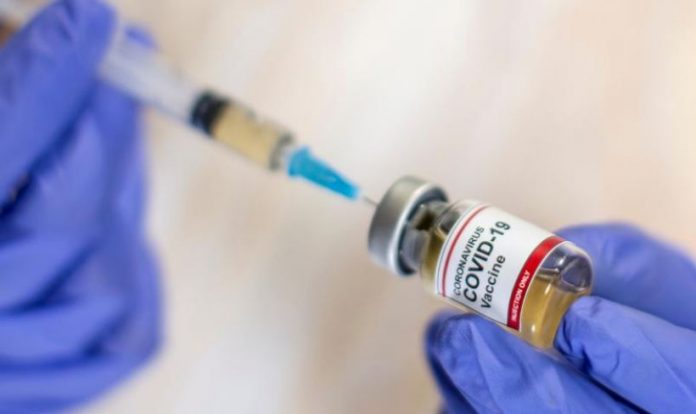DNA
ISLAMABAD – The Leading representatives of industry and enterprises showed their confidence in Government of Pakistan’s timely interventions to insulate the industry from getting hurt due to COVID19.
Appreciating State Bank of Pakistan’s deferment of loan and temporary economic relief facilities, they suggested that government should do more to protect micro small and small enterprises from the direct and indirect effects of a possible second wave of COVID19.
They also highlighted the need for establishing an internationally recognized certification lab which may certify that exports going to Middle East and EU were according to their respective standards. In the absence of such lab in Pakistan, exporters have to send their samples to China to get the required certification. In case of any restriction on air transportation during second wave of COVID19, our exports t these destinations would be severely affected.
This was the crux of the virtual meeting of high powered “Industry and Enterprise” sub-group of Planning Minister’s Advisory Committee. The group’s convener and member of Advisory Committee Dr. Abid Qaiyum Suleri highlighted that Government of Pakistan was trying to reach out to the private sector stakeholders to understand and address their needs during the pandemic. “In the short run the purpose of getting feedback from leaders of industry is to enable the Government to come up with a demand driven and evidence based policy response to protect businesses during these testing times; in the medium to long run, this group can help Planning Commission to tailor its initiatives that may stimulate sustainable growth and economic recovery” said Dr Suleri, while orienting about the purpose of establishing the sub-group.
Mr. Asim Saeed, Member, Planning Commission reiterated that as a key planning agency of the Government, the Planning Commission believes in engaging with all stakeholders. In this case, we want to come up with doable initiatives which have a complete buy in of industries.
Mr Asfandyar Farrukh, Managing Director, Hub Leather Group said that reopening of business activities helped to honor the export orders. Terming cashflow and liquidity crunch as a major challenge for retail sector during COVID19, he urged that State Bank should come up with a mechanism to lend money to retail sector based on their banking transactions and other taxes.
Engr M.A Jabbar, Chief Executive, Qaim Automotive highlighted the disparity that exists between ease in customs duties provided to exporters and manufacturers for local supplies. Government needs to provide some tax breaks amidst COVID19, demanded Engr Jabbar.
Ms Shanza Anwar from Steel Castings group termed shortage of steel scrap – a basic raw material, the biggest challenge for the steel industry. She pointed out that one of the biggest market for Pakistan fans, Saudi Arabia has additional certification requirement. These laws were changed during the times of COVID and most of the industry players were not aware of them. This caused in our consignments getting held at Saudi ports of entry. We have to send fans to China for testing and certification. Government should ensure that we have internationally accredited labs in Pakistan for uninterrupted exports.
“Miracle Man”, Mr Zafar Masud, President Bank of Punjab termed deferment of loan repayments by private sector and Temporary Economic Relief Facility (TERF) by SBP as a major relief measures for industry. He also emphasized on creating awareness about employment initiatives, “Kamyab Jawan Program” and “Punjab Rozgar Scheme”. He however, expressed fears about possible default of many industries in the FY22, and said that banking sector should work on minimizing the fall out effects of COVID19 in FY22.
Mr Waqar Ahmad of Nestle Pakistan and Afghanistan highlighting the impacts of COVID on food and beverage sector said that multiple times shutdowns of production plants to disinfect them is increasing the cost of production. “The beverages sector has struggled to recover as schools and large gatherings got curtailed during peak sales season, i.e., summer” he added. Government needs to ensure smooth movement of food items during future waves of the pandemic he advised.
Muhammed Ashraf, Former President Sialkot Chamber of Commerce & Industries raised the issue of new certification required to export to EU from February 2021. “These tests are extremely expensive, and we don’t have internationally accredited laboratory in Pakistan. This would hamper export of medical and surgical goods to the EU”, added M Ashraf. He also suggested that a Special Economic Zone should be established in Sialkot, which would help in cleaner and greener production by reducing industrial waste.
Ms Rahat Kaunain, Chairperson, Competition Commission of Pakistan reiterated the need for protecting SME sector during pandemic times. “We need figures and updated data evidence to see how SMEs can be helped further”, she opined.
Dr. Vaqar Ahmed JED SDPI highlighted the need for a more strengthened public private dialogue and that also at a sector specific level. “The digital transformation of businesses is important during the pandemic. The implementation of e-commerce policy should be expedited” he added.
The recommendations of the sub group would be presented in the Planning Commission Advisory Committee on 25th November.

















